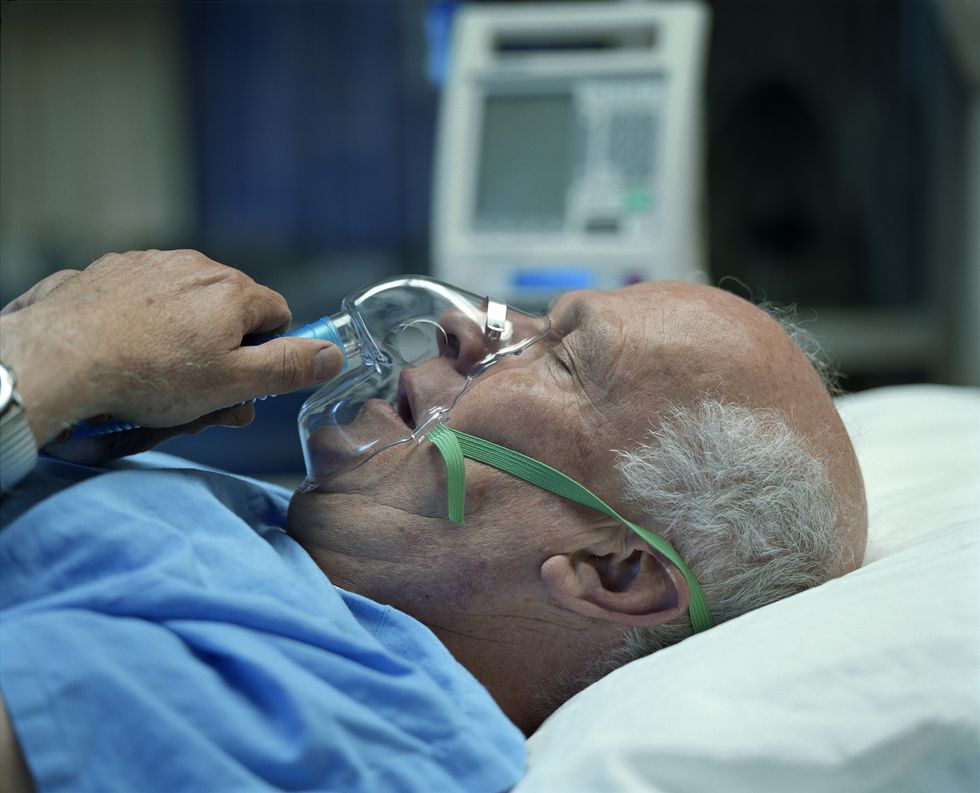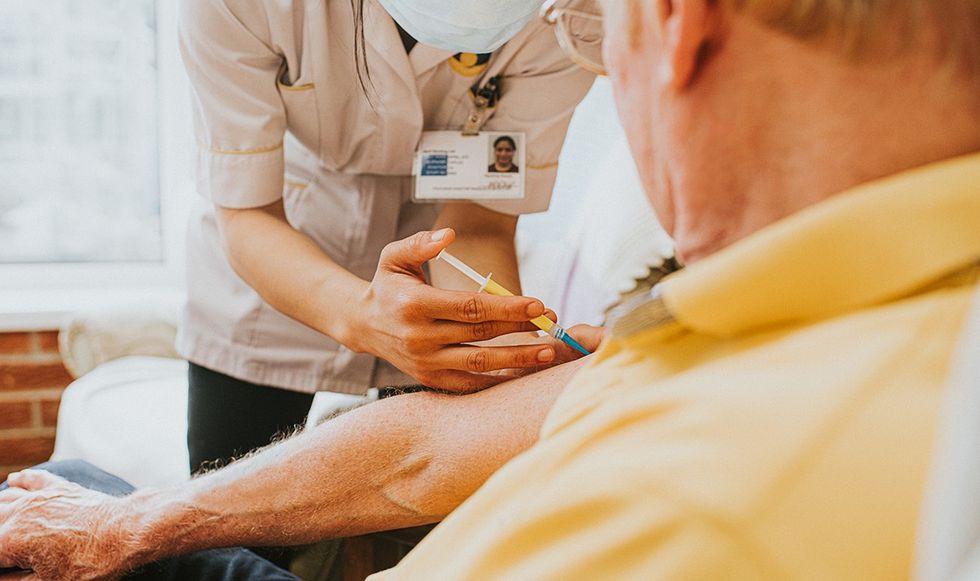New Covid variant sparks 'wake-up call' warning as hospitalisations jump by almost 30% ahead of summer wave

KP.3 is feared to be driving up hospitalisations ahead of a summer wave
Don't Miss
Most Read
Trending on GB News
Scientists are sounding the alarm over a new Covid variant that's driving up hospitalisation rates across the UK ahead of summer.
KP.3 belongs to a new group of COVID-19 variants, known collectively as FLiRT, which emerged in early April.
The unofficial nickname was inspired by the names of the mutations in the genetic code of the variants.
They are a spin-off from JN.1 - a variant that could transmit efficiently through an additional one or two mutations.

P.3 has almost doubled UK infections to 44 percent in less than two weeks, latest figures reveal
Getty Images
Three strains of the new FLiRT variation, KP.1.1, KP.3 and KP.2, accounted for 40 percent of all cases in the UK as of April 2024, UK Health Security Agency data shows.
KP.2 is thought to have driven a wave of infections in May before passing the baton to P.3, which has almost doubled UK infections to 44 percent in less than two weeks.
KP.2’s share has declined to 22 percent.
Hospital admissions rose by 24 percent in the week to Sunday, from 2.67 people per 100,000 to 3.31 per 100,000, according to new figures from the UKHSA.
Waning immunity among the general population may be driving up rates of infection but a top scientist has warned that the spread of the latest variant is a "wake-up call" that a summer wave could be approaching.
“This is a wake-up call. The virus hasn’t gone away and is certainly not a seasonal infection,” Professor Lawrence Young, a virologist at Warwick University, told i.
The current number of recorded infections is far lower than the peak of the spring wave, which crested less than a month ago – and the soaring levels seen last autumn and winter.
But the latest UKHSA figures show the proportion of positive test results among people suspected of having Covid rose by 19 percent in a week, from 8.4 to 10 percent.
LATEST DEVELOPMENTS

Vaccines remain our best defence against severe disease and hospitalisation from flu and COVID-19
Getty Images
Similarly, tests at GPs showed positivity rates jumped by 13 percent – from 4.7 percent to 5.3 percent – over the same period.
Commenting on the current rise, Professor Steve Griffin, of Leeds University, said: "This is clearly early days, but it certainly looks as though yet another Covid wave is building.
"If the rise in hospitalisations continues, this is obviously worrying. Although we’ve just had a spring booster campaign for vulnerable populations, the uptake was lower than in 2023, and there is a considerable difference between the current vaccines and circulating viruses."
Similar noises are being heard across the pond as the variant gains a foothold.
Since the beginning of June, KP.3 has overtaken KP.2 and now accounts for 25 percent of COVID-19 cases in the US, although its parent is snapping at its heels with 22.5 percent of cases.
How worried should you be?
There is no evidence that the latest offshoot poses a greater health concern to the general population than its ancestors.
After years of vaccinations and infections, most people are better able to fight off an infection without as much concern for severe disease.However, if you have symptoms of a respiratory infection, such as COVID-19, and you have a high temperature or do not feel well enough to go to work or carry out normal activities, you should avoid contact with vulnerable people and stay at home if possible, advises the UKHSA.
Vaccines also remain our best defence against severe disease and hospitalisation from flu and COVID-19.
That's why over-75s, those who have a weakened immune system, and anyone living in a care home for older adults, are advised to come forward for their spring vaccination.
If you’re eligible, you can get a spring COVID-19 vaccine by:
- Booking online
- Going to a walk in COVID-19 vaccination site
- Booking on the NHS App
- Talking to a local NHS service, such as a GP surgery
- Talking to your care home










